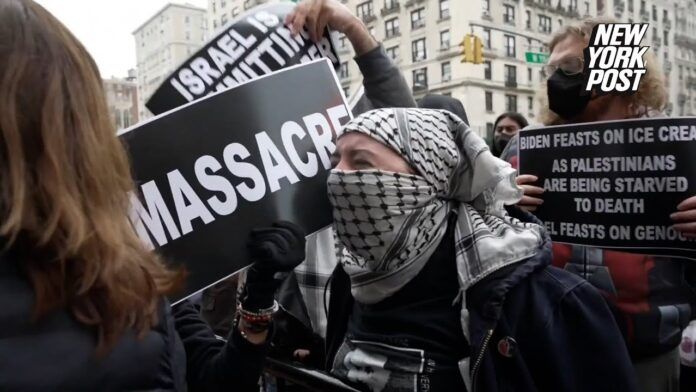Over 100 protesters were detained as Columbia University and NYPD enforced campus policies, sparking debates on free speech and student activism
New York’s Columbia University recently became the epicentre of controversy following the arrest of over 100 pro-Palestinian protesters by the NYPD. The university has also suspended several students, escalating tensions on campus amid ongoing demonstrations against Israel’s military actions in Gaza.
The conflict at Columbia started when students, along with other activists, erected tents on campus grounds as a form of protest against the Israeli government’s policies and military actions in Gaza. This demonstration led to a significant clash with university authorities, who deemed the encampment an unauthorized violation of university regulations.
New York City Mayor Eric Adams and Columbia’s administration, led by President Nemat Shafik, justified the police intervention and subsequent arrests by highlighting the need to maintain order and adhere to campus policies. They emphasized that while students have the right to free speech, they must also respect university rules that prohibit disruptions of the academic environment.
During the arrests, which were closely covered by media outlets and shared across social platforms, tensions heightened. Videos posted online show NYPD officers detaining protesters, many of whom were students from Columbia and its affiliate, Barnard College. Among those suspended was Isra Hirsi, the daughter of U.S. Representative Ilhan Omar, who voiced her determination to continue advocating for Palestinian rights despite the university’s actions.
The situation gained further attention after a congressional hearing where President Shafik was questioned about the university’s stance on anti-Semitism and its handling of pro-Palestinian protests. Representative Omar challenged Shafik regarding the targeting of Palestinian sympathizers on campus, underscoring the political sensitivity of the issue.
Columbia University has a long history of student activism, with its campus often serving as a stage for larger national and international issues. The current protests echo the spirit of activism seen during the Vietnam War era, highlighting ongoing student engagement in global political matters.
As the university moves forward with disciplinary actions against the participants of the protest, the broader community remains divided. Supporters of the protesters argue that the university’s actions suppress essential voices and stifle debate on critical international issues. Critics, however, insist on the importance of upholding institutional policies to ensure that educational activities are not hindered
